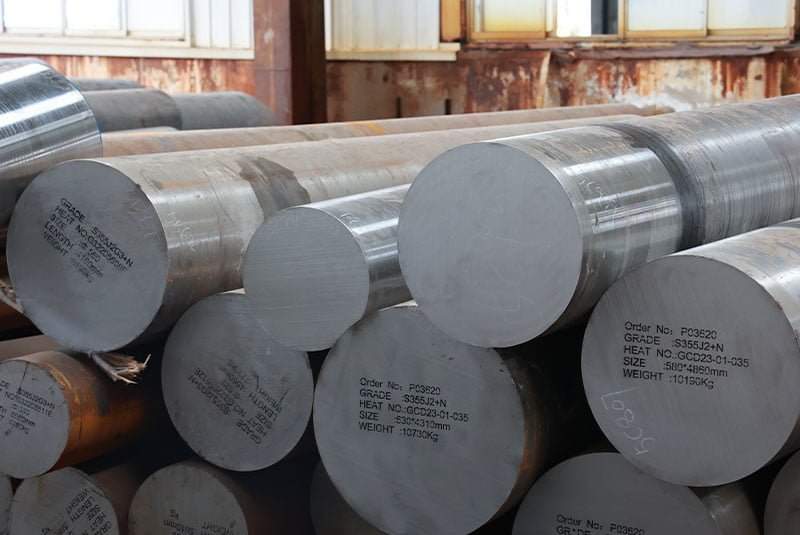Understanding the yield strength of materials is crucial for engineers when selecting the appropriate material for specific applications. One such material that is widely used in various engineering fields is 1045 steel. In this comprehensive guide, we will delve into the properties, applications, and advantages of 1045 yield strength, focusing on how it can be effectively utilized in engineering projects. By the end of this guide, you will have a clear understanding of why 1045 steel is a popular choice and how to leverage its properties for your engineering needs.
Introduction

What is 1045 Steel?
1045 steel is a medium carbon steel with a nominal carbon content of 0.45%. This material is known for its high strength and hardness, making it ideal for applications that require durability and resistance to wear and tear.
Importance of Yield Strength in Engineering
Yield strength is the maximum stress that a material can withstand without undergoing permanent deformation. Understanding the yield strength of materials like 1045 steel is vital for engineers to ensure the structural integrity and safety of their designs.
Properties of 1045 Yield Strength
Mechanical Properties
The mechanical properties of 1045 steel include its yield strength, tensile strength, and elongation. These properties are influenced by the material’s composition and heat treatment process.
Table: Mechanical Properties of 1045 Steel
| Property | Value |
|---|---|
| Yield Strength | 530 MPa |
| Tensile Strength | 630 MPa |
| Elongation | 16% |
Chemical Composition
The chemical composition of 1045 steel plays a significant role in its mechanical properties. The main components include carbon, manganese, and small amounts of other elements.
Table: Chemical Composition of 1045 Steel
| Element | Percentage |
|---|---|
| Carbon (C) | 0.43-0.50% |
| Manganese (Mn) | 0.60-0.90% |
| Phosphorus (P) | 0.040% max |
| Sulfur (S) | 0.050% max |
Applications of 1045 Yield Strength
Automotive Industry
1045 steel is extensively used in the automotive industry for parts that require high strength and wear resistance, such as gears, shafts, and axles.
Construction Industry
In the construction industry, 1045 steel is used for making structural components that need to withstand heavy loads and stress, including beams, columns, and supports.
Machinery and Equipment
1045 steel is ideal for manufacturing various machinery and equipment parts, thanks to its excellent machinability and toughness.
Advantages of Using 1045 Steel

High Strength and Durability
One of the primary advantages of 1045 steel is its high yield strength, which provides exceptional durability and resistance to deformation under load.
Machinability
1045 steel offers good machinability, allowing it to be easily cut, shaped, and formed into various components without compromising its strength.
Cost-Effectiveness
Compared to other high-strength materials, 1045 steel is relatively cost-effective, making it an economical choice for many engineering applications.
Heat Treatment of 1045 Steel
Annealing
Annealing is a heat treatment process that softens 1045 steel, making it easier to machine and improve its ductility.
Quenching and Tempering
Quenching and tempering processes are used to enhance the hardness and strength of 1045 steel, making it suitable for applications requiring high wear resistance.
Conclusion
1045 steel, with its impressive yield strength and versatile properties, is an invaluable material in the field of engineering. Whether you are working on automotive parts, construction components, or machinery, understanding the yield strength and other properties of 1045 steel will help you make informed decisions and ensure the success of your projects.
FAQ
What is the yield strength of 1045 steel?
The yield strength of 1045 steel is approximately 530 MPa.
How does heat treatment affect 1045 steel?
Heat treatment processes such as annealing, quenching, and tempering can significantly alter the mechanical properties of 1045 steel, enhancing its strength, hardness, and ductility.
What are common applications of 1045 steel?
1045 steel is commonly used in the automotive industry, construction industry, and for manufacturing various machinery and equipment parts.
Is 1045 steel cost-effective?
Yes, 1045 steel is relatively cost-effective compared to other high-strength materials, making it a popular choice for many engineering applications.
Can 1045 steel be easily machined?
Yes, 1045 steel offers good machinability, allowing it to be easily cut, shaped, and formed into various components without compromising its strength.
